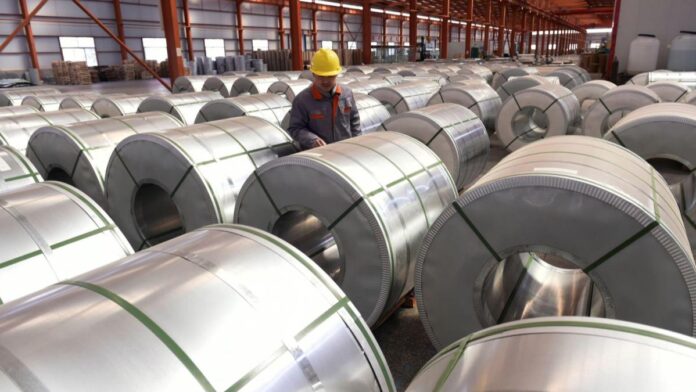– By Sunil Gupta
As India embarks on an ambitious clean energy journey, aluminium stands at the forefront of this transformation. Aluminium is playing a pivotal role in powering new domestic innovations across energy storage, transportation, and infrastructure development. With the country targeting 50% of electricity generation from renewable sources by 2030, aluminium is an important cornerstone of India’s changing energy landscape.
Be it wind energy, solar power or electric vehicles — the metal has established itself in a variety of roles. According to the International Aluminium Institute, the renewable energy industry will require an additional 5.2 million tonnes of aluminium by 2030. This is no surprise, given that the metal accounts for over 85% of the materials used in solar photovoltaic components, making it a key material for renewable energy infrastructure.
Currently, India is the world’s fourth-largest consumer of electricity, the demand for which will rise by 8% within this year itself and could grow at 10% annually in the future. To power India’s needs sustainably, the government is incentivising companies to enhance renewable energy capacity, improve grid infrastructure, and promote energy efficiency. Aluminium is critical to serve these initiatives well.
Also ReadWeak demand to keep revenue growth of FMCG firms muted
Powering Renewable Energy Infrastructure
Aluminium’s role in renewable energy has proven to be indispensable, across applications like solar panels, wind turbines, and hydroelectric installations. Solar panels rely heavily on aluminium for their frames and mounting structures. Aluminium is also gaining traction in innovative energy solutions such as floating photovoltaics, which offer enhanced buoyancy and efficiency. In marine energy applications, aluminium-bronze alloys are now used in wave energy converters and tidal turbines, thanks to their exceptional fatigue resistance.
As India shapes its policies towards encouraging more sustainable solutions, various public-private partnerships have come into effect to realise India’s green energy goals, especially in mega solar energy projects such as the Rewa Solar Project in Madhya Pradesh, one of the largest in the world. Furthermore, recent government actions, including the implementation of anti-dumping duties on aluminium frames for solar panels imported from China, are fostering a more robust environment for domestic manufacturing, strengthening the economy and reducing reliance on imports.
Energy storage is another area where aluminium is demonstrating its value.
» Read More


